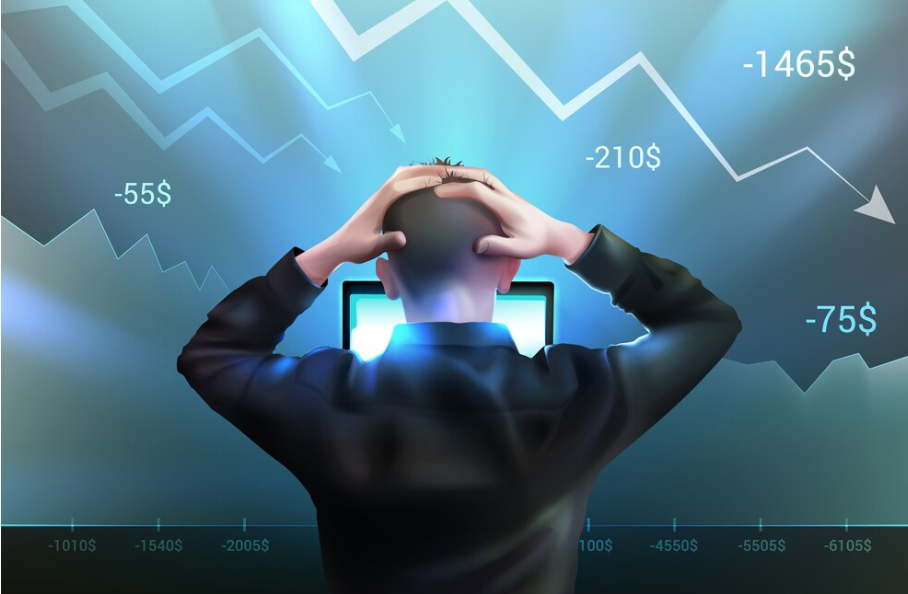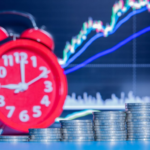Simply stated, luck cannot produce consistently profitable trading results; therefore traders who rely solely on it risk incurring massive losses through excessive leverage usage and risky trading strategies.
Forex traders must learn to effectively control their emotions during forex trading, such as fear, greed and overconfidence. To be successful at forex trading we also must learn to overcome behavioral biases like loss aversion bias and hindsight bias.

Understanding the Psychology of Forex Trading
Forex trading involves exchanging currencies on an open market. An understanding of various analyses is central to becoming successful at forex trading; another essential aspect lies within psychology – emotions, tendencies and mental processes such as cognitive biases as well as fear or greed-induced triggers can all have an effect on decisions taken during trading activities.
Behavioral finance examines the influence of psychological factors on investment decisions and market results. Traders may fall prey to various biases such as confirmation bias, illusion of control bias, hindsight bias and availability bias; regret and revenge often play an integral part of trading psychology and can lead to costly decisions with potentially significant repercussions that lead to unexpected paths that ultimately cause significant losses.
Confirmation bias refers to our tendency to seek evidence which corroborate our beliefs and collect proof that we are right in making our assumptions. If there is some mistake on our part, confirmation bias will gather evidence in support of that view in order to convince itself that you’re still correct even though your mistake might have been obvious to others.
Hindsight Bias refers to misinterpretation of past market movements as more predictable than they actually were, leading to problems in subsequent decision making processes.
Revenge bias refers to trading with revenge as its sole focus in order to recover losses made previously. Learning from past errors and moving on are both essential parts of life; however, trading with this as our primary goal can be both highly risky and detrimental to profits.
Recognizing and controlling emotional triggers that influence trading psychology are integral parts of creating a winning forex strategy. Being aware of such events will allow you to prepare an effective plan and remain committed even during times of uncertainty.
Psychological Challenges in Forex Trading
Trading psychology refers to the study of emotions that impact decision making when trading. Understanding these emotional influences allows traders to develop disciplined strategies capable of withstanding market fluctuations.
Emotional trading, herd mentality and confirmation bias are three psychological pitfalls traders often fall prey to when trading. Emotional trading occurs when traders allow their emotions to guide their decisions and lead them down paths that ultimately lead to errors and costly losses. Emotional trading becomes especially risky during uptrends when confidence soars rapidly or losses mount quickly as desperation sets in with traders searching for ways to recover funds quickly.
Confirmation bias is a risk for traders that arises when they search for evidence supporting their beliefs, leading them down a path of unproductive research and irrational decision-making that ultimately produces poor trading results. To reduce the chances of making errors due to confirmation bias, traders can keep a journal that documents both profits and losses as well as any behavior which causes losses so as to identify which areas need improving and implement changes accordingly.

Psychological Strategies for Successful Forex Trading
To be successful at forex trading, prospective traders must first learn to manage their emotions and overcome the psychological hurdles associated with trading the foreign exchange market. Doing this will allow them to avoid emotionally charged decisions when receiving payouts or incurring losses and make more effective trading decisions overall.
Fear, greed and anger can seriously compromise traders’ judgement and result in significant losses. To manage such emotions more effectively, traders can study various aspects of trading psychology, practice self-awareness and develop personalized trading plans tailored specifically to their risk profile and trading plan.
Emotional stability among traders is defined as their ability to remain calm under pressure and effectively manage stress. To do this, traders should create an entry and exit criteria plan based on various analyses; implement risk management rules continuously; and avoid making sudden deviations from their trading strategy.
Mindfulness and self-awareness are important components of effective trading psychology. By understanding their strengths and weaknesses, traders can remain grounded during difficult trading scenarios. Furthermore, traders should set realistic expectations as well as long-term goals for their trading performance.
Cognitive and emotional biases affect all humans, leading us to make irrational judgements. Common forms include searching for information to confirm existing beliefs, herding behavior and loss aversion biases; traders can avoid these by ensuring trading situations are evaluated using objective evidence and rational thought; learning to differentiate their feelings from those of others while objectively analyzing market developments.
Building Emotional Resilience and Discipline
Experienced traders must possess both knowledge and emotional resilience for successful trading. Fear, greed and impatience can distort decisions irresponsibly; to counteract this issue effectively one solution might be creating a trading plan with clear restrictions to limit irrational decisions while mitigating risk.
One way of cultivating emotional resilience is viewing setbacks as opportunities rather than causes for regret, instilling optimism and leading to better decisions when trading future endeavors – leading to capital growth and eventually greater success over time.
Trading forex can be both emotionally satisfying and anxiety-inducing; therefore, having strategies in place to effectively manage emotions and achieve consistent profits are crucial components of succeeding in this profession.
Greed can be one of the greatest psychological barriers to forex trading and may lead to taking more risk than intended. Thus, having an established money management plan and adhering closely to it are two essential components for successful forex trading.
Impatience can be one of the biggest hurdles to forex trading, leading traders to make short-term trades for short-term gains rather than their long-term benefits. To overcome this hurdle, traders should gradually build up their trading balance by reinvested profits back into future trades; doing this will allow them to build capital over time and become better investors.

Psychological Biases in Forex Trading
Cognitive biases can undermine trading decision-making processes and result in subpar trading and investment decisions. To combat cognitive biases, traders can raise self-awareness, use objective research analysis tools, as well as gather information that challenges existing biases to reach more balanced decisions.
One common trading bias is confirmation bias, in which traders conduct research or analysis with limited vision and only seek evidence that supports their current point of view while disregarding any contrary evidence or opinions that challenge it. This can lead to overconfidence and poor risk management practices. Another form of trading bias is bandwagon effect: when traders blindly follow trends without fully comprehending why they exist; this often results in price bubbles like cryptocurrency markets in 2017 and GameStop’s scandal in 2021.
Status quo bias refers to an investor or trader’s tendency to favor current investments and positions over those that require change, leading them to make irrational choices such as holding onto losing trades for too long or selling winning ones too quickly. When combined with sunk cost fallacy it can result in the disposition effect – where traders fear taking actions which might reduce profits but actually end up decreasing them later due to regrettable outcomes.
Establishing and upholding an effective trading psychology is crucial to becoming successful forex traders. Recognizing mental barriers associated with trading, practicing strategies, seeking support from peers or mentors and seeking feedback all help create discipline that consistently produces results. Once your foundation is secure, focus on improving your trading skills, risk management techniques, mindset and overall approach – these will become key elements in becoming an effective trader.











